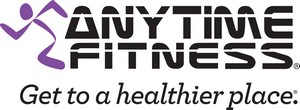Don’t overpay on your energy bills. Follow these tips to save on heat, and then watch those energy costs shrink!
Install or upgrade insulation
Older homes are more likely to suffer from poor insulation. If you have an old home, add attic and wall insulation to prepare for the winter. Insulation is measured by R-value per inch—the R-value represents its resistance to heat transfer. You’ll want a high R-value.
Regulate your thermostat or switch to a programmable thermostat
The customization settings on a programmable thermostat allow you to regulate heat and cold according to your needs. When you limit how much you heat and cool unoccupied spaces, you’ll likely notice a lower energy bill.
Change your air filters
Change your HVAC filters frequently. Obstructed vents don’t efficiently move air through your home. In order to maximize air flow, consider moving furniture away from vents.
Use your ceiling fans
Know how to maximize ceiling fan potential to cut down on costs. Ceiling fans are more energy efficient than HVAC systems, so consider using just them whenever possible. During summer, you can reverse the direction of your ceiling fans to pull the cooler air up and circulate it throughout the room.
Seal all openings
Any open space in your doors and windows that lead to and from the outside will force your HVAC system to work twice as hard. You can use foam weather stripping on the insides of your doors and windows to prevent drafts and air exchange.
Switch to a space heater
If you’re not in the room, you don’t need to heat it. When you’re ready for bed, turn down your thermostat and crank up your space heater in the bedroom.
Optimize your HVAC system
It can sometimes be difficult to tell if your cooling and heating system is truly efficient—but there are some warning signs that you should pay attention to. While optimization costs might be expensive up front, they can end up saving you a lot of money in the long run.





















